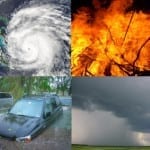Damages add up big time for insurance industry. Insurance policies provide your business with security and assurance that your assets and possessions are accounted for in the event of unfortunate circumstances that directly affect your operations. Problems arise and come in different forms, but during the past decade, certain elements have become regular contributors in creating the most expensive insurance claims. By being able to identify and learn more about these factors, you can figure out if including them in your insurance policy is worth looking into. Natural elements Today’s…
Read MoreTag: Japan Earthquake
M 7.3 Earthquake Strikes Off Japan; Little Damage Reported: AIR
BOSTON, Dec. 7, 2012 – According to catastrophe modeling firm AIR Worldwide, a magnitude 7.3 earthquake struck off the northeast coast of Japan today, 270 kilometers from the Japanese city of Sendai, at 18:18:24 local time. The event struck in the same plate boundary region impacted by last year’s devastating M 9.0 Tohoku earthquake, although that quake’s epicenter was about 150 kilometers closer to mainland Japan. According to AIR, given the distance of this event from shore, only minimal non-structural damage is expected, and insured losses are not expected to…
Read MoreUnderstanding Earthquake Risk in Japan Following the Tohoku-Oki Earthquake
BOSTON, Feb. 16, 2012 – Catastrophe modeling firm AIR Worldwide released a new report titled, “Understanding Earthquake Risk in Japan Following the Tohoku-Oki Earthquake of March 11, 2011.” The M9.0 Tohoku earthquake changed the seismic risk landscape of Japan. In response, AIR scientists have conducted a detailed analysis of whether and where the stresses relieved by the Tohoku earthquake have been transferred to neighboring faults. Although damage from this event is most closely associated with the massive tsunami-which in places reached a height of more than 30 meters and demolished…
Read MoreJapan at risk of more strong quakes in the next four years, say seismologists
Japan is still working to recover from a massive magnitude-9.0 earthquake that rocked the nation last year. The quake generated a tsunami that claimed 20,000 lives and spurred a nuclear crisis that continues to this day. While it will certainly not be the last quake Japan experiences in its lifetime, seismologists from the University of Tokyo say that the next quake will come sooner than expected. According to researchers, there is a 70% chance that the nation will be hit by a powerful quake of magnitude-7.0 or higher within four…
Read MoreU.S. Regulators consider need for nuclear plant safety improvements
American regulators have been looking into whether or not U.S. nuclear plants require improved safety measures after having seen the disaster in Fukushima following the Japan earthquake in March 2011. Even though testing has found the American plants to be fundamentally sound, the U.S. Nuclear Regulatory Commission still found room for improvements. According to the Commission Chairman Gregory Jaczko, the review was a part of a 90-day task force – which is now two thirds complete – that has revealed that there are mixed results beginning to emerge. Jaczko explained…
Read MoreBusiness owners seek help in evacuated areas around nuclear plant
The Tokyo Electric Power Company (TEPCO) not only is dealing with a leaky nuclear power reactor but business owners who have been evacuated from areas around the damaged Fukushima plant want compensation. Most of them have been unable to return to their homes to get work tools or supplies, and have been living in shelters since the evacuation took place. Since nuclear damage is not a covered peril under most insurance plans, these businesses have been left on their own to manage. A group of twenty people, made the trip…
Read MoreJapan Catastrophe 2011: The Wake Up Call
After seeing the devastation from last month’s earthquake and tsunami in Northeast Japan, officials in Tokyo are re- evaluating their current disaster plan. The huge 9.0 quake on March 11th that occurred over 200 miles from Japans capital made them realize they weren’t prepared for the worst-case situation. Japan has been working for over 40 years to make their country safer from devastating earthquakes. Earthquake engineering is a normal part of the construction process in Japan. City leaders were confident they had prepared for worse-case scenarios; until the quake…
Read More


